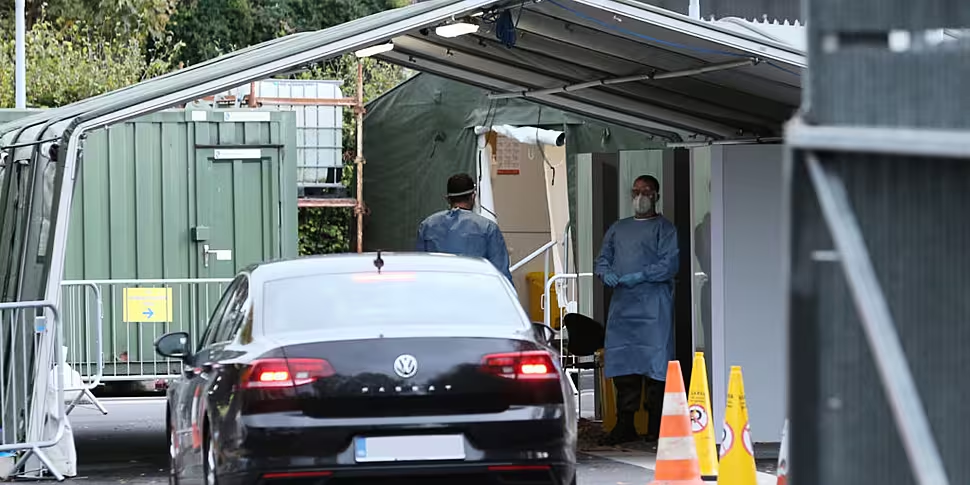A professor of health systems has said figures indicate that the number of coronavirus cases is going in the right direction.
It comes as the country's estimated 14-day incidence rate of COVID-19 has fallen for a third day in a row.
It now stands at 292 after a further 866 new cases of the virus were confirmed on Thursday night.
Six more deaths were also reported to the Department of Health.
Cavan still has the highest estimated incidence rate of any other county in the country at 753 - however it has fallen over the past week.
Meath is dealing with the second-highest rate at 561.9, while Westmeath is in third at 404.4.
The rate in Dublin stands at 253.5, while Tipperary has the lowest rate in the country at 145.4.
Professor Anthony Staines, professor of health systems at DCU, told Breakfast Briefing: "It is positive, because it could have continued going up or it could have stayed the same.
"So something is probably beginning to happen.
"It's too early to be patting ourselves on the back yet, but it's certainly going in the right directions".
Prof Staines said the long discussions about level five restrictions, before they came in, most likely impacted people's behaviour.
"My thought is this is probably down to the very long discussion about going to level five before level five came in.
Level five - it isn't like turning on a switch or taking a tablet, it's something that changes people's behaviour.
"And the discussions about the serious problems we were having before it came in, the discussions between NPHET and the Government's response to NPHET's advice all of that almost certainly changed people's behaviour.
"The level three restrictions really seemed to have very little effect: they may have stopped things getting worse, which is obviously enormously important, but there wasn't much sign that it was going down till that discussion really kicked into gear".
December decisions
Prof Staines said the disease will go up and down, and this could affect decisions the Government will make for December.
"We can't be sure yet that it's going to continue smoothly down.
"The objective for the Government is to get this to a level at which we can reduce the restrictions at the beginning of December without serious problems ensuing.
"I don't know that we will achieve that, but I hope that we will, but we will certainly reduce the number of cases further over the course of November."
"The Government still has the question of what happens in December: the concern is that if we go back to low levels of restrictions... that cases will start rising again towards the end of December, and by the end of January/beginning of February we could be back where we are now - which obviously would be very unfortunate.
"But it is the nature of this disease, it tends to go up and tends to go down, so the Government has serious choices to make in December."
He said that the leaking of NPHET letters, about moving to level five restrictions, was the wrong thing to do but had the desired effect.
"I think the way it was leaked was wrong, I think it was leaked with other purpose in mind.
"And I think the way it was leaked caused a lot of damage to both the Government and NPHET.
"I don't think it was a good way to do business, but I think the long discussion about it did change how people behave.
"People respond not just to rules: they respond to what other people do, they respond to what's in the air, they respond to advertising, they respond to discussions.
"I think we did need to go to higher level of restrictions".
He also said that the number of intensive care admissions will hopefully go down in due course as cases drop.









